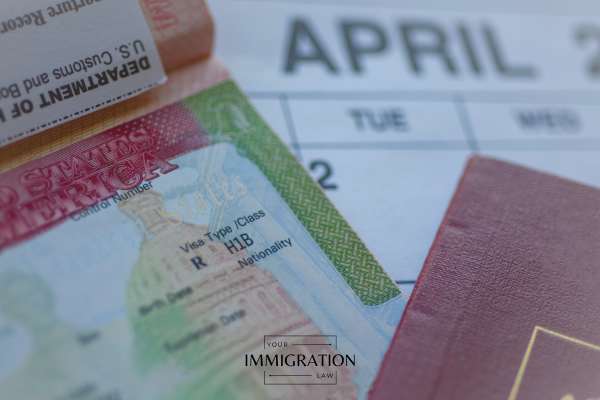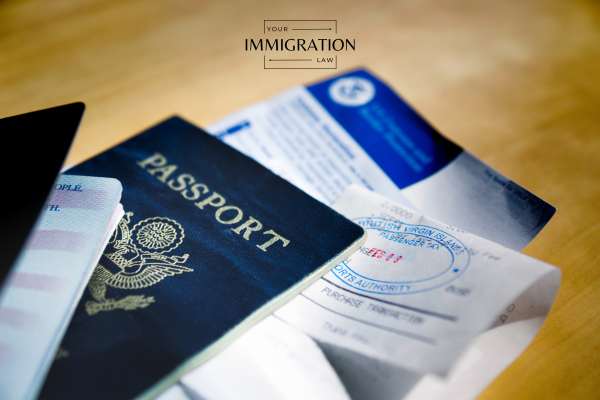Navigating the U.S. immigration system can feel overwhelming, especially when it comes to obtaining a temporary visa. Each year, thousands of foreign nationals seek to visit, study, or work in the United States for a limited time.
Understanding the different types of temporary visas, eligibility requirements, and application process can help make your journey smoother. In this guide, we’ll explore the various temporary visas available, the steps needed to apply for them, and how to overcome common challenges.
If you're planning a temporary stay in the U.S., having legal guidance can make a significant difference. Contact a temporary visa lawyer today at 313-631-8080 to discuss your options and get the legal support you need.
Types of Temporary Visas and How to Qualify for Them
There are many types of temporary visas, each with specific requirements based on the purpose of your visit, such as work, study, or tourism:
B-1/B-2 Visitor Visas
The B-1 and B-2 visas are nonimmigrant visas that allow individuals to enter the U.S. temporarily. The B-1 visa is for business purposes, such as attending meetings, conferences, or negotiating contracts. The B-2 visa is for tourism, allowing individuals to visit for leisure, sightseeing, or family visits.
To qualify for a B-1 or B-2 visa, applicants must demonstrate their intent to return to their home country after their visit. Typical activities under these visas include attending business meetings, engaging in tourist activities, and visiting family and friends. However, individuals on B-1/B-2 visas cannot work or study while in the U.S.
H-1B Visa for Specialty Occupations
The H-1B visa is specifically designed for temporary workers in specialty occupations that require a higher level of expertise. This visa is popular among tech, engineering, healthcare, and finance professionals. Employers must demonstrate that the position requires specialized knowledge that the applicant has.

The application process for H-1B visas includes several key steps. First, employers must submit a Labor Condition Application (LCA) to the Department of Labor, ensuring they will pay the prevailing wage for the position. The process is competitive, as there is an annual cap on the number of H-1B visas issued. This leads to a lottery system for applications submitted during the designated period of time.
The employer must then file a petition with U.S. Citizenship and Immigration Services (USCIS). This includes documentation of the applicant's qualifications and the job offer.
F-1 Student Visa
The F-1 visa is for international students wishing to attend U.S. academic institutions. It allows full-time study at accredited colleges or universities. It also permits optional practical training (OPT) after graduation. Foreign students must understand the requirements of the student visa to maintain their legal status.
To maintain F-1 status, students must be enrolled in a full course of study and comply with the terms of their visa. Students can work on-campus, but off-campus employment is typically limited to OPT or Curricular Practical Training (CPT). Regularly checking in with the Designated School Official (DSO) is essential for maintaining compliance.
J-1 Exchange Visitor Visa
The J-1 visa is for participants in approved cultural exchange visitor programs. This visa category includes students, researchers, teachers, and interns who come to the U.S. to enhance their skills and knowledge through various programs.
To qualify for a J-1 visa, applicants must be accepted into a program sponsored by an approved organization. Sponsoring organizations are vital. They facilitate exchanges, provide support, and ensure compliance with the program's requirements.
O-1 Visa for Individuals with Extraordinary Ability
The O-1 visa is for individuals with extraordinary ability in their field. This includes artists, athletes, and scientists. This nonimmigrant visa allows individuals to work in the U.S. for a specific period based on their exceptional talents.
To qualify for an O-1 visa, applicants must prove their extraordinary ability. They must provide strong evidence of their achievements and contributions to their field. This type of visa is highly sought after as it can lead to long-term opportunities in the U.S.
Temporary Work Visas (H-2A, H-2B)
The H-2A visa is specifically for foreign workers coming to the U.S. to perform agricultural work on a temporary or seasonal basis. In contrast, the H-2B visa is for non-agricultural seasonal work, such as hospitality and construction. These visas help employers fill labor shortages in industries that require temporary workers.
To obtain a work visa, employers must demonstrate a temporary need for foreign labor. They must also conduct a labor market test to show that there are not enough U.S. workers available for the job. Both employers and workers must comply with specific regulations, including the certification process.
The Temporary Visa Application Process
The visa application process is detailed and requires attention to eligibility criteria and documents. Understanding the steps involved is essential to avoid delays or denials:
Eligibility Evaluation
The first step in the application process is to check eligibility. This is based on the applicant's purpose for visiting the U.S. We must determine the appropriate visa for each situation. This could be for business, tourism, study, or work. Consulting with a lawyer can help clarify which visa aligns best with the applicant's goals.
Document Preparation and Submission
Gathering necessary documentation is crucial for a successful application. This includes proof of intent to return home, financial support, and letters from sponsors or prospective employers. An immigration lawyer can assist in ensuring that all required forms are correctly completed and submitted to avoid delays.
Consular Processing and Interviews
After applying applicants will typically go through a visa interview at a U.S. Embassy or Consulate. In the interview, applicants must answer questions about their visit and their ties to their home country.
Consular processing may cause common issues. A lawyer can help fix them and boost approval chances.
Common Challenges in Obtaining a Temporary Visa
Obtaining a temporary visa can present various challenges, from meeting strict criteria to providing accurate documentation. Understanding these common obstacles can help you better prepare:
Proving Non-Immigrant Intent
One of the significant challenges applicants face is proving that they intend to return home after their stay. This often involves demonstrating strong ties to their home country. An example of this could be family, employment, or property ownership.

Legal strategies can include providing documentation of these ties to overcome suspicions of immigrant intent.
Visa Denials and Overcoming Refusals
Visa denials can occur for various reasons. Some of the most common are lack of documentation, misrepresentation, or inadmissibility issues. Understanding the grounds for denial is crucial for reapplying or appealing the decision.
A lawyer can assist with reapplying, appealing an immigration denial, or seeking a waiver of inadmissibility if necessary.
Maintaining Visa Status
Visa holders need to comply with their visa conditions. This includes not overstaying or engaging in unauthorized activities. Maintaining legal status ensures that foreign nationals can continue their activities in the U.S.
A lawyer can provide legal advice on how to maintain status and what to do if status is violated.
How a Temporary Visa Lawyer Can Help
An experienced immigration attorney can help with the application. They can guide you, ensure all requirements are met, and address any issues. Their assistance can help streamline your application and increase your chances of approval.
- Personalized Consultation and Visa Strategy: A temporary visa lawyer consults to assess each case. They then create a custom plan to maximize the chances of approval. Their experience ensures that each case is handled professionally and effectively.
- Assistance with Filing and Documentation: Lawyers provide invaluable assistance in preparing and submitting all necessary documentation, including visa forms, proof of intent, and support letters. Their attention to detail helps prevent errors that could lead to delays or denials.
- Interview Preparation and Legal Representation: A lawyer can help applicants prepare for consular interviews. They can address any concerns that may arise. Their guidance can significantly increase the chances of a successful outcome.
- Ongoing Legal Support: Temporary visa attorneys offer ongoing legal support for extending or renewing temporary visas, changing status, or transitioning to another visa category if needed.
This ensures that foreign nationals have the guidance they need throughout their time in the U.S.
Conclusion
To visit or work in the U.S., you must know about temporary visas. Understand their types, eligibility, and application process. Whether you're applying for a B-1/B-2 visitor visa, an H-1B for specialty occupations, an F-1 student visa, or any other type, being informed and prepared is key to a successful visa application.
If you have questions or need guidance, don't hesitate to contact our experienced temporary visa lawyer. Together, we can navigate the complexities of U.S. immigration law and help you achieve your goals in America.